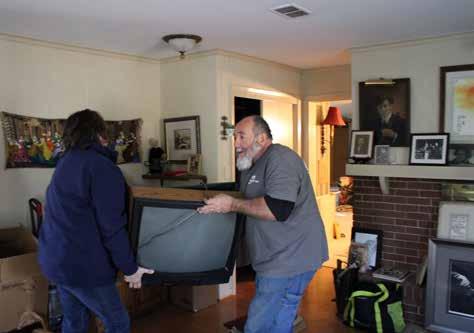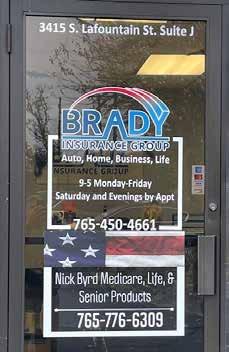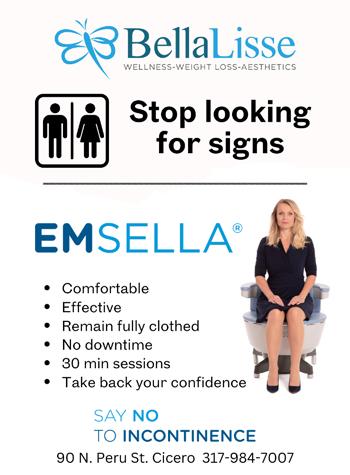


















Your trusted solution for repairs, replacement & maintenance of the plumbing fixtures, water lines, drain lines and gas lines throughout your home!
We have an arsenal of equipment to bust through stubborn clogs and perform camera inspections to determine a permanent solution!
Rehabilitation of old, problematic and failing sewer pipes with little or no excavation. Aged pipes become like new again!
Solutions for hard water, smelly water, rusty water, bad tasting water, yucky water, city water & well water. Talk to us about how to have fresh, clean, delicious tasting water!








plumbing drain cleaning sewer jetting camera/locate water conditioning trenchless drain repairs and more!
Follow us on Facebook & Instagram for tips and education from our home experts!










AUGUST CROSSWORD PUZZLE
SENIOR ORGANIZING PROS Seniors Can Opt to Right-Size Instead of Downsize to Stay in Their Current Homes
HELP FROM
HEART Caring for Those With Dementia, and the Caregivers Too

PUBLISHER KIM SENKUS kim@townepost.com (317) 501-1743
KEY CONTRIBUTORS NICK BYRD CHRISTY HEITGER-EWING MATT KEATING NATALIE PLATT DYLAN SENKUS
TOWNE POST NETWORK, INC. FOUNDER, CEO TOM BRITT tom@townepost.com (317) 496-3599 PRESIDENT JEANNE BRITT jeanne@townepost.com (317) 810-0011
PRODUCTION COORDINATOR ERIN TURK CREATIVE DIRECTORS VAL AUSTIN TONI EADS DIRECTOR OF DIGITAL SERVICES DEVON DEAN COPY EDITOR JON SHOULDERS
TOWNE POST NETWORK, INC. 8800 North Street, Suite 117 Fishers, IN 46038 Phone/Text: (317) 810-0011

CONTACT THE PUBLISHER Have a story idea or suggestion for the magazine?
Sponsored By:
Cathy Hunnicutt with Remax Realty One
DOWN
ACROSS
1. Budding socialite
4. Inconclusive
8. Foot division
12. Word of support
13. One with a glazed look?
14. Something to walk on
15. Playing pieces
17. Aspen forecast
18. Adversary of Bugs
20. Shared airs
21. Chesterfield, e.g.
23. Outlet
25. Old hat
27. “___ cheese!”
33. Sauce for falafel
35. Is in the past?
36. Conned
38. Knuckleheads
39. Dentist’s request
41. Part of a schedule
42. Sight-related
28. Top secret?
16. Do some cutting, maybe
31. Some jazz ensembles
45. Muslim legal adviser
47. Dear companion?


1. Three Gorges project
2. Good looker?
3. Fund-raising events
4. Bullet on an agenda
5. Bona ___ (credentials)
6. Plays footsie, perhaps
7. “Are we there ___?”
8. Focus of debate
9. All alternative
10. Congeal
11. Wields an ax
19. After the deadline
20. Wood nymph
21. Put aboard
22. “Jaws” craft
24. Bit for a stable diet?
26. Behavioral principle
28. Venus or Serena
29. Passionate about
30. Essence
32. Sorry
34. Throng
37. Reserved
39. Electrician’s concern
40. Hearsay
42. Erstwhile
43. Christmas tree?
44. Hawaiian root
46. Manage without assistance
48. Shark sighting, often
50. Dr. No, to 007
51. Post-breakdown need
48. Vapor
49. Mariner’s direction
52. Nurse’s offering
53. Club choice
54. Bossy bellow
55. Archer of myth
56. Hardly Mr. Cool
57. Fix the rent?









Ivy Tech Community College offers associate degrees, short-term certificates, and workforce certifications in fields where workers are needed most, so you can be ready to get started in a career quickly That’s just one reason 92% of our alumni would choose Ivy Tech again.
New classes start October 21, but don’t wait! Visit IvyTech.edu/apply-now to get started.





Whether you are looking to purchase or refinance a home this spring, now is the time. Ruoff Mortgage helps people discover, finance and move into their homes with confidence. Contact me today to get started.

Writer / Christy Heitger-Ewing Photographer / Dylan Senkus


We hear all the time about decluttering to downsize, but there’s a whole segment of the population who has no interest in leaving their homes. Many seniors who still enjoy good health would like to continue living at home.
There are, however, some changes that should be made for this demographic, and it involves “right-sizing” their dwellings.
Right-sizing may involve eliminating certain items that could prove to be safety hazards, such as area rugs. It could also include creating a clear pathway for medical equipment such as wheelchairs or walkers. It also means purging the house of grown kids’ stuff since they no longer live there.
“It’s just about making it right for you to age in place,” says Sherry Brown, senior move manager and professional organizer.
Brown has found that often it’s easier for seniors to take advice from her than from their children, who may be nagging them to get rid of tripping hazards like braided rugs.
“When I tell them that the number-one reason people have to leave their homes is because they break a hip and can no longer navigate their house, their tune changes,” Brown says. “They’re like, ‘You mean I can stay here if I get rid of my rugs?’”
The rugs are definitely a start. Brown also helps seniors with retrofitting their bathrooms to make them handicap


accessible, since a lot of these houses were built decades ago and don’t have wide doorways or walk-in showers. Brown works with contractors to help navigate necessary remodels, whether it be installing a high-rise toilet or a grab bar.


While some seniors push back on spending, Brown reminds them that it’s a lot less expensive to remodel a bathroom than to pay for assisted living.
“Once you move into some sort of retirement community, you usually don’t leave,” she says. This is because folks typically transition from independent living to assisted living to skilled care, as they age.



“Those places are pricey so if someone can still cook, drive and take care of themselves, I think it’s wise to right-size to stay home,” says Brown, who began her career as a professional organizer and quickly learned that her target audience was seniors because they have accumulated a good deal of stuff.
“Generationally, older people hold onto things because they feel they might need it,” says Brown, who is affiliated with the National Association of Senior and Specialty Move Managers. Much of her work often involves “first-level living,”and she makes sure that everything a resident needs is accessible on the first floor so they don’t have to navigate stairs.
“With seniors, I’m not going to come in with color-coded bins,” Brown says. “We need to simplify their lives.”


It’s not unusual, when decluttering a senior’s home, to come across 16 pairs of scissors or a dozen nail files. Her job as a right-sizing specialist is to thin out the unnecessary clutter and eliminate items that are broken, worn out or no longer wanted. For nostalgic pieces that take up space, Brown suggests trade-offs to make letting go easier. For instance, if folks have their wedding photos, she encourages them to donate their gown to charity. She also recently worked with a family who struggled to part with their dishes. Brown suggested that everyone in the family, including kids and grandkids, each take a dish.
“You don’t need the whole set to evoke a memory,” Brown says.
Sometimes her clients are relieved when Brown takes items off their hands. They’ll say, “I don’t want to know what you’ve done with it. I’m turning the power over to you to find it a home.”
Sometimes all they need is reassurance that it’s going to someone who will appreciate it as much as they did.
To contact Sherry Brown, call 765-625-0480 or email sherry@ seniororganizingpros.com.



Cross America is a 501(c)3 non-pro t with a huge goal. We are on a mission to send a cross & path to salvation to EVERY HOME in America. Join our mission and be the ONE to volunteer, serve or even sponsor a zip code. Your tax deductible donation may be given in honor or memory of a loved one. Please prayerfully consider supporting the ministry and be part of the Great Commission!



Writer / Nick Byrd
As of April 2024, there were 67 million Americans on Medicare. Of those 67 million, it’s about 50% on Original Medicare with a Medicare Supplement with a Prescription Drug Plan, and 50% on a Medicare Advantage Plan. By 2030 it is expected that 20% of Americans will be over age 65, and 80 million people will be on Medicare.
As the election season heats up, we are all going to hear the rhetoric about saving Medicare and Social Security, but what

exactly does saving Medicare mean? In President Biden’s budget proposal of March 7, 2023, he proposed several changes that he claims will extend Medicare’s solvency for another 25 years. The Trump campaign website states, “President Trump will always protect Medicare, Social Security, and patients with pre-existing conditions.”
I think it’s safe to say that Medicare will always be around, as both political parties know that trying to eliminate Medicare is political suicide.
Anyone who works in the health care industry is already aware of the regular changes to reimbursement for services from Medicare, and continues to work through the constraints placed upon them by the managed-care Medicare Advantage Plans. As someone who has worked as an occupational therapist and rehabilitation manager over the past 25 years, I can assure you the Medicare reimbursements for rehabilitation services have routinely changed over the years, and we currently must wait for prior authorizations

from many insurers before beginning rehabilitation services. Prior authorizations are a way for insurers to limit their expenses.
How is Medicare going change going forward? In a recent gathering of health insurance agents in Las Vegas, Ty Wooldridge, the president of Continental Life Insurance Company, which is part of Aetna, says he expects a 1% to 2% decline in the purchasing of Medicare Supplements, but overall, he feels the Medicare Supplement market is still strong. I believe that may be true on a nationwide basis. However, that is not what I’m experiencing as a health care provider and as a Medicare agent in the north-central Indiana area. I see the Medicare Advantage plans slowly becoming more popular as the price of the Medicare supplements continues to increase annually, and the fixed income of seniors has less purchasing power due to the recent rise of inflation.
I also believe the Centers for Medicare & Medicaid Services (CMS) will encourage or incentivize more people to go to the Medicare Advantage Plans. Richard Eisenberg wrote in the April 2024 Fortune magazine that there will be some changes to Medicare coming in 2025 (fortune.com/ well/article/medicare-changes-2025). He reports that insurance companies that offer Medicare Advantage Plans will be required to contact their Medicare beneficiaries for a midyear notification reminding them of their unused dental, vision, hearing or fitness benefits. The implication of this requirement is clear; CMS wants people to

use these supplemental benefits, which will ultimately lead to more beneficiaries being satisfied with their managed care plan.

WE HAVE OVER 1,000 WEDDING AND SPECIAL OCCASIONS DRESSES WAITING FOR YOU.

Bridal Gowns
Proms
Special Events
Dresses $50 & up


Another change coming in 2025 came out of the recently passed Inflation Reduction Act. The out-of-pocket maximum Medicare beneficiaries will spend on Part D prescription drugs will decrease from $3,300 this year to $2,000. This will include stand-alone Prescription Drug Plans and the drug plans embedded within Medicare Advantage Plans. Initially, this may sound good and may likely benefit those who are taking expensive medications. However, to help the insurance companies compensate for their increased costs, insurers may require more prior authorizations, require the use of alternative prescriptions, place other restrictions for some prescriptions, or require copays for the lower-tier routine prescriptions. This may also lead to increased premiums for the stand-alone Prescription Drug Plans, and it may cause some insurance providers to limit their options of plans or stop offering plans altogether. Mutual of Omaha has already announced that they will no longer offer stand-alone prescription drug plans after

2024 due to the changes imposed by the Inflation Reduction Act.
You can see how the potential changes in the Prescription Drug Plans, in addition to the annual increases in Medicare Supplement rate, may be incentives to some to consider a Medicare Advantage Plan that has no monthly premium and a Prescription Drug Plan that is included. The actual changes to the 2025 Prescription Drug Plans and Medicare Advantage Plans won’t be made public until October 1. When the time comes, I will be talking to my clients about the upcoming changes and what they mean to them specifically. I am always available to speak to anyone who wants to discuss their specific Medicare situation.
Nick Byrd is the Medicare and health insurance specialist for the Brady Insurance Group in Kokomo. He is also the rehabilitation director at Silver Birch Assisted Living Facility in Kokomo.




On the first of each month at 12:00 noon, for a moment, we will walk outside and stand in prayer for our community. Together in prayer we can grow this community in love and kindness. As the “City of Firsts,” join us spreading the act of prayer to unify communities. Nothing changes without prayer.
As of this year, the oldest members of Generation X are knocking on the door of senior citizenship. Gen X birth years are generally between 1965 and 1980, give or take, which means the oldest members are just turning 60. Senior citizenship years can be just as vague, but with popular groups like AARP and the lowering retirement age, Gen Xers are going to have to face the facts; the time is here or near. Let’s take a look at some facts and stats that helped define this great generation.
• Generation X refers to the cohort of people born roughly between the early 1960s and the early 1980s.
• It is often defined as the generation following the baby boomers and preceding the millennials.
• Generation X is sometimes referred to as the “latchkey generation” due to the prevalence of both parents working, and children often being left unsupervised.
• They grew up during a time of significant social and economic change, including the rise of technology and globalization.
• Generation X is smaller in size compared to the baby boomers and millennials.
• The term “Generation X” was popularized by a novel by Douglas Coupland titled “Generation X: Tales for an Accelerated Culture,” published in 1991.
• They experienced the end of the Cold War and the fall of the Berlin Wall.





• Many Generation Xers were influenced by the music of the 1980s, including genres like punk, new wave and hip-hop.
• The MTV generation emerged during their teenage years, shaping their cultural tastes and consumption habits.
• They were the first generation to widely adopt personal computers and video game consoles.
• Generation X witnessed the rise of alternative music and the grunge movement in the 1990s.
• They experienced the AIDS epidemic and its impact on society.
• Many Generation Xers were part of the “slacker” culture, characterized by a laidback attitude and a disdain for traditional career paths.
• They were the first generation to navigate the transition from analog to digital technology.
• Generation Xers entered the workforce during economic recessions in the 1980s and early 1990s.
• They tend to value independence, selfreliance, and work-life balance.
• Generation Xers are often described as pragmatic and skeptical, with a distrust of institutions.
• They grew up during a time when divorce rates were high, leading to a focus on creating stable families as adults.




• Many Generation Xers were influenced by the films of the 1980s and 1990s, including iconic movies like “The Breakfast Club” and “Reality Bites.”



• They witnessed the rise of cable television and the decline of traditional network TV.
• Generation Xers experienced the Challenger explosion and other major events broadcast on live television.
• They were the first generation to embrace email and the early internet.
• Generation Xers were often portrayed in popular culture as disaffected and cynical.
• They grew up during the peak of the Cold War, with fears of nuclear annihilation.
• Many Generation Xers were part of the DIY (do-it-yourself) culture, embracing activities like skateboarding, winemaking and indie music.
• They experienced the transition from VHS to DVD to streaming media.
• Generation Xers were influenced by the rise of celebrity culture and reality TV.
• They came of age during the rise of the environmental movement and concerns about pollution and climate change.
• Many Generation Xers attended college during a time of rising tuition costs and student loan debt.
• They witnessed the rise of corporate globalization and outsourcing of jobs.
• Generation Xers were the first to experience the ubiquity of cell phones and later smartphones.
• They were the first generation to grow up with divorced or single parents as a common experience.
• Many Generation Xers were influenced by the DIY music scene, with bands forming in garages and basements.
• They experienced the dot-com boom and bust of the late 1990s and early 2000s.
• Generation Xers often value authenticity and are skeptical of marketing and advertising.
• They grew up during the heyday of arcades, and home gaming consoles like Atari and Nintendo.
• They witnessed the rise of cable news networks like CNN and MSNBC.
• Generation Xers were the first to experience the transition from analog to digital photography.
• Many Generation Xers were influenced by the rise of skateboarding culture in the 1980s.
• They experienced the rise of the personal computer and the internet revolution.
• Generation Xers were often depicted in popular culture as rebels or outsiders.
• They grew up during a time of increasing cultural diversity and acceptance.
• Many Generation Xers were influenced by DIY fashion and punk aesthetics.
• Generation Xers were the first to experience the transition from analog to digital music formats.
• They grew up during a time of shifting gender roles and expectations.
• They experienced the rise of home video rental stores like Blockbuster.
• Generation Xers were the first to experience the transition from printed newspapers to online news sources.
• Many Generation Xers were influenced by the rise of independent cinema.
• They experienced the rise of digital piracy and file-sharing networks.
• Generation Xers were the first to experience the transition from traditional
• Many Generation Xers were influenced by the rise of alternative medicine and holistic health practices.
• Many Generation Xers were influenced by the rise of the internet and social media.
• They experienced the rise of online gaming and virtual communities.
• Generation Xers were the first to experience the transition from traditional

• Generation Xers were the first to experience the transition from landline telephones to cell phones.
• They grew up during a time of increasing awareness of mental health issues.
• Many Generation Xers were influenced by the rise of hip-hop culture.
• They experienced the rise of celebrity gossip magazines.

Entering the realm of senior living retirement is a significant life transition, and in the digital age, a wealth of online advice awaits those seeking guidance on how to make the most of their golden years. From financial planning to social engagement to health and wellness, the internet offers a plethora of resources to empower seniors in creating a fulfilling retirement lifestyle.
Financial planning is a critical aspect of a successful retirement, and numerous online resources cater specifically to seniors. Websites like AARP and Kiplinger provide comprehensive guides on retirement
budgeting, investment strategies and navigating Social Security benefits. Online calculators such as those on the Social Security Administration website enable seniors to estimate their benefits and plan accordingly, ensuring financial security throughout their retirement years.
For seniors exploring various retirement living options, Retirement Living and SeniorAdvice are invaluable online platforms. These websites offer comprehensive directories of retirement communities, assisted-living facilities and independent-living options. With reviews,
pricing information and detailed amenities, seniors can make informed decisions about the living arrangements that best suit their preferences and needs.
Maintaining social connections is crucial for overall well-being during retirement, and online platforms facilitate meaningful connections. Social media networks like Facebook and Instagram allow seniors to stay in touch with family and friends, sharing life updates and photos. Additionally, Meetup is a platform that connects individuals with similar interests, helping seniors find local groups and events

to participate in, fostering new friendships and community engagement.
To address the health and wellness aspect of senior living, A Place for Mom and Caring. com provide resources on health care services, home care, and senior-friendly exercise programs. Apps like SilverSneakers offer tailored workout routines for seniors, promoting physical activity and overall health. These resources empower seniors to proactively manage their well-being and enjoy an active lifestyle.
For those seeking intellectual stimulation

tips on using computers, smartphones and other devices. These resources help seniors overcome technological barriers, empowering them to stay connected, access information and enjoy the benefits of the digital world.
and lifelong learning, online courses and educational platforms offer a wealth of opportunities. Coursera, Udemy and Khan Academy provide a wide range of courses on diverse subjects, allowing seniors to explore new interests and expand their knowledge base. Many universities also offer free or discounted courses for older adults, enabling continuous personal and intellectual growth.
Technology assistance is readily available for seniors looking to embrace the digital age. Websites like SeniorNet and Senior’s Guide to Computers offer tutorials and
As seniors navigate the complexities of legal and estate planning, online resources such as LegalZoom and Nolo offer guidance on creating wills, trusts and other essential documents. These platforms simplify the legal process, providing seniors with the tools to ensure their affairs are in order and their wishes are clearly communicated.
By leveraging these online resources, seniors can navigate the complexities of retirement with confidence, embracing this new chapter with vitality and purpose.

THE WELLINGTON AT KOKOMO
2800 S. Dixon Rd. 765-455-2828 bloomatkokomo.com
PRIMROSE RETIREMENT
COMMUNITY OF KOKOMO
329 Rainbow Dr. 765-455-1700 primroseretirement.com
WELLBROOKE OF KOKOMO
2200 S. Dixon Rd. 765-455-4443 trilogyhs.com
FIVE STAR RESIDENTS OF NORTH WOODS
2501 Friendship Blvd. 765-454-0001 fivestarseniorliving.com
THE VILLAS AT WATERFORD PLACE
800 St. Joseph Dr. 765-450-9842 trilogyhs.com
KOKOMO PLACE
3025 W. Sycamore St. 765-456-1490 opsliving.com
SILVER BIRCH OF KOKOMO
408 S. Washington St. 765-868-7266 silverbirchliving.com
WATERFORD PLACE HEALTH CAMPUS
800 St. Joseph Dr. 765-450-9842 trilogyhs.com
JEFFERSON MANOR
603 St. Joseph Dr. 765-868-3000 fivestarseniorliving.com
THE RESIDENCES AT WASHINGTON STREET
400 N. Washington St. 765-450-6498 pivotal-communities.com
REFLECTIONS MEMORY CARE
2800 S. Dixon Rd. 765-455-1111 capitalsenior.com
BLOOM AT KOKOMO
2800 S. Dixon Rd. 765-455-2828 bloomsseniorliving.com
BRENTWOOD GREENE SENIOR LIVING
1534 E. Dodge St. 765-457-8452 brentwoodgreene.wodagroup.com
APERION CARE KOKOMO
3518 S. Lafountain St. 765-453-4667 aperioncare.com
EMERALD HAVEN
5007 S. Webster St. 765-434-2333 emeraldhavenalh.com
GOLDEN LIVING CENTERSYCAMORE VILLAGE
2905 W. Sycamore St. 765-452-5491 goldenlivingcenters.com
KOKOMO HEALTHCARE CENTER
429 W. Lincoln Rd. 765-453-5600 communicarehealth.com
AUTUMNWOOD VILLAGE
ASSISTED LIVING
1102 S. Main St. 765-675-9800 millerseniorliving.com
TIPTON SENIOR APARTMENTS
900 E. Jefferson St. 765-408-0210 tiptonseniorapartments.com
THE WATERS OF TIPTON
300 Fairgrounds Rd. 765-675-8791 watersoftipton.com














The Best Dogs for Seniors: A 2024 Guide

Writer / Christy Heitger-Ewing
Six years ago, Jennifer Coy-Rash was busy raising her two young children when she began noticing that her mother could no longer find her way to her house or to the local library. She observed other odd behavior, too, so she had her 64-year-old mom evaluated, and she was diagnosed with early-onset Alzheimer’s. A couple years later, Coy-Rash’s dad received the same diagnosis.
While Alzheimer’s disease is the most common type of dementia, accounting for 60 to 80% of cases, other types include dementia with Lewy bodies, frontotemporal, and vascular.
When we think of the word “dementia,” we tend to think of memory loss, but it’s actually much more than that. According to Jessie Hillock, owner and founder of The Memory Compass, dementia is a loss of executive function.
“We’re doing a disservice by thinking of dementia as memory loss,” says Hillock, a dementia care specialist. “A person may be able to
name the day of the week and the president of the United States, but they can’t operate their cell phone or their microwave oven.”
It’s important to recognize the difference between normal aging and mild cognitive impairment. With normal aging, you may see changes in one’s ability to multitask, slowed thinking speed, occasionally struggling to find the right word, and sometimes forgetting names and appointments but remembering them later. Also with normal aging, the individual experiencing these issues is the only one who notices them. Mild cognitive impairment, however, is when others take notice. In this instance, an individual’s memory loss disrupts life. They experience confusion with time or place, they misplace things and are unable to retrace steps, and they may struggle with understanding visual images and spatial relationships, which can result in car accidents. Also, dementia patients lose their filter.
When communicating with someone with dementia, Hillock recommends joining the person in their reality, rather than trying to

invite them into yours. For example, say your mother passed away five years ago and your father, who has dementia, asks you where his wife is. Rather than reminding him that she’s been deceased for years, it’s better to say, “I think she’s at the store right now,” or, “What would you like to tell her?”
Some people think taking their loved one to the gravesite will help them grasp reality, but that news just serves to confuse and overwhelm them.
Another common scenario with dementia patients is realizing that it’s best, for the well-being of all concerned, to take their car keys away. In this instance, what do you do if they keep asking for their keys? Rather than stating that it’s no longer safe for them to drive, it’s better to say, “I took your car to the shop,” or, “Your grandson needed to borrow your car.”
“This one is great because if they feel they are helping someone, that makes them feel useful,” says Hillock, who calls these little white
lies “therapeutic fiblets.”
Karen Rogers (name changed to protect identity) says that providing her husband with a fake set of keys keeps him happy.
“Holding those keys makes him feel independent,” says Rogers.
One common complaint from families of dementia patients is their refusal to eat or drink. Asking them if they’re hungry or thirsty will likely be met with an upturned nose. If, however, you hand them a plate of food or a glass of water, they’ll often eat or drink it.
“Lead them to food and sit down with them,” says Hillock.
Helping dementia patients find purpose is key. Hillock knows of a lady who leaves the same basketful of laundry for her mother to fold over and over because her mom wants to feel like she’s helping. You may have heard of dementia patients who are given a baby doll or a stuffed animal to “care for.” While this works beautifully in some cases, Hillock points out that it can be anxiety-provoking for others if they are concerned that someone has abandoned their baby or their pet.
In 2021, 11 million Americans reported providing 16 billion hours of unpaid care for loved ones with dementia. Furthermore, the Central Indiana Council on Aging reports that one in six millennial caregivers who cares for someone living with dementia struggles with mental, physical and financial hardships because of their caregiving role. Therefore, it’s important that we acknowledge the importance of caring for the caregiver as well.
Jean Crane, a counselor at Care to Change, says this entails meeting physical, mental, emotional and social needs. This includes eating nutritious foods, engaging in proper exercise and getting adequate rest. It’s also crucial for a caregiver to cut out negative self-talk.
“Be less judgmental and more compassionate to yourself,” says Crane.
Also curtail your “what-if” thinking, which only stirs anxiety. It’s better to focus on today, in the given moment.
It’s also wise to practice self-gratitude. “It’s impossible to be anxious and grateful at the same time,” says Crane.
Emotionally, you should identify, express and process your feelings. In other words, if you’re stressed, breathe. If you’re angry, punch a pillow. If you’re disappointed, confide in a trusted friend. Also, tend to your soul needs.
“What brings you rejuvenation?” asks Crane. “What fills your tank? You can’t give if you have nothing left inside.”
A dementia diagnosis can be a scary thing, but keep in mind that there are resources available to help you.
Coy-Rash ended up connecting with a lot of great resources, many through the local senior center, which helped her navigate this new life with her parents. She now is well-versed in Medicaid waiver payments including eligibility criteria, finding providers, and the services that are covered.
“Connecting with the proper resources is so helpful,” says Coy-Rash.
Senior Citizens Organization, Inc., which serves Hamilton County and surrounding areas, gives members a safe place to meet for fellowship, and also provides information, services and referrals to local agencies and their services. Visit seniorcitizensorg.org for more information.
• Be patient when their memory fails by letting them try again, and reminding them of what they were talking about.
• Make your conversations meaningful rather than just engaging in small talk. When you enter into “their world,” they may have a lot to say. Let them guide the conversation, rather than asking them, “Remember when?”
• Avoid letting them read thrillers or watch crime shows before

bedtime, because they may wake up thinking they are part of the scene. Stick with lighthearted books and shows in the evenings.
• If they are struggling to find the correct word, ask them to point to an object or gesture in order to communicate.
• Avoid towering over them so they don’t feel intimidated. Bend down to meet them at eye level.
• Speak slowly and clearly, and wait patiently for a response, as it may take 20 or more seconds for them to process what you said.
KOKOMO:
Waterford Place Health Campus
Kokomo Healthcare Center
Wellington at Kokomo
Golden Living Center - Sycamore Village
Kokomo Place
Aperion Care Kokomo
North Woods Village
Primrose Retirement Community of Kokomo
Wellbrooke of Kokomo
TIPTON: Miller’s Merry Manor







